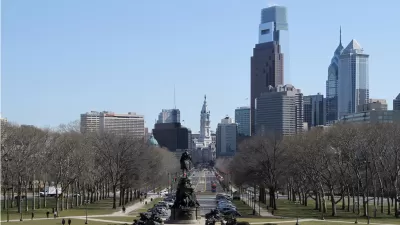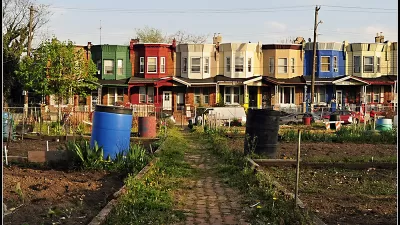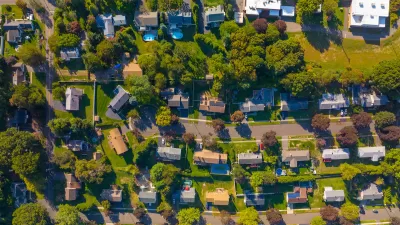In the run-up to a municipal primary scheduled for May 21, Philadelphia's City Council has introduced a range of bills to address housing affordability and tenants' rights.

"Since 2015, the last time Philadelphians elected a new mayor and City Council, cities around the United States have begun trying to address their housing crises with a variety of housing policies," Jared Brey writes. With a May primary election on the horizon, Philadelphia councilmembers have put forward five bills touching on the issue.
One of them draws on ongoing conversations about inclusionary zoning. It would "require that any public land that is sold for multifamily development set aside at least a third of the units for low-income tenants," essentially mandating inclusionary policies on city-owned land, but only for multifamily developments and not single-family ones.
Another bill takes its inspiration from Councilmember Helen Gym's pilot Philadelphia Eviction Prevention Project, proposing a Low-Income Tenant Legal Defense Fund that could, according to one report, save $45.2 million per year in costs attributable to homelessness and related issues for an annual outlay of only $3.5 million.
Other bills include legislation to restrict what kind of background information landlords can access, to establish an affordable housing tax credit, and to stipulate that ads for rental listing services include city rental license numbers.
FULL STORY: Philadelphia Sees Election Season Housing Push

Alabama: Trump Terminates Settlements for Black Communities Harmed By Raw Sewage
Trump deemed the landmark civil rights agreement “illegal DEI and environmental justice policy.”

Planetizen Federal Action Tracker
A weekly monitor of how Trump’s orders and actions are impacting planners and planning in America.

Why Should We Subsidize Public Transportation?
Many public transit agencies face financial stress due to rising costs, declining fare revenue, and declining subsidies. Transit advocates must provide a strong business case for increasing public transit funding.

Understanding Road Diets
An explainer from Momentum highlights the advantages of reducing vehicle lanes in favor of more bike, transit, and pedestrian infrastructure.

New California Law Regulates Warehouse Pollution
A new law tightens building and emissions regulations for large distribution warehouses to mitigate air pollution and traffic in surrounding communities.

Phoenix Announces Opening Date for Light Rail Extension
The South Central extension will connect South Phoenix to downtown and other major hubs starting on June 7.
Urban Design for Planners 1: Software Tools
This six-course series explores essential urban design concepts using open source software and equips planners with the tools they need to participate fully in the urban design process.
Planning for Universal Design
Learn the tools for implementing Universal Design in planning regulations.
Caltrans
Smith Gee Studio
Institute for Housing and Urban Development Studies (IHS)
City of Grandview
Harvard GSD Executive Education
Toledo-Lucas County Plan Commissions
Salt Lake City
NYU Wagner Graduate School of Public Service





























